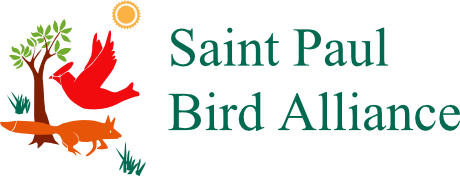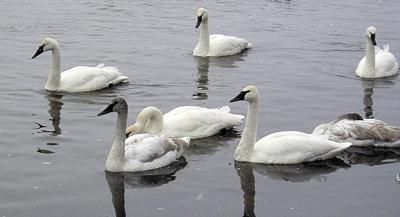Proposed Swan Legislation from the US Fish and Wildlife Service
Donn Waage, President of the Saint Paul Audubon Society, submitted comments on behalf of the Society to the US Fish and Wildlife Service about their proposed regulatory changes regarding swans and hunting. The changes would authorize the incidental hunting of Trumpeter swans.
The regulations can be found here https://www.regulations.gov/document?D=FWS-HQ-MB-2019-0004-0008
Letter from the Saint Paul Audubon Society to the US Fish and Wildlife Service
The Saint Paul Audubon Society and its approximately 2,000 members would like to comment on the US Fish and Wildlife Services Migratory Bird Hunting Regulations impact upon swans.
The recovery of the Trumpeter Swan in the Midwest region is a great conservation success story. The men and women of the US Fish and Wildlife Service who played a part in this recovery effort should be recognized and applauded. Conservation science has made remarkable strides since the passage of the Endangered Species Act of 1973. The Service has also played a major role in the greater understanding of species populations and habitat requirements. The Saint Paul Audubon Society supports decision making using species science.
However, population recovery of a species, however much we celebrate it, should not be the sole criteria for deciding to hunt a species. For example, the population of the American Bald Eagle has also recovered. There are enough Bald Eagles so that there could be limited hunting. Would an Environmental Assessment recommend hunting because some small towns in Alaska and Minnesota would benefit from hunters? We don’t think so. Any environmental review the Service undertakes must consider the full range of socio-economic benefits provided by the species – not only a limited audience.
The Service’s own 2016 National Survey of Fishing, Hunting and Wildlife Association Recreation found that 45 million people enjoy birding. An article in the StarTribune on Sept. 27, 2017 about a USFWS study stated that 40% of Americans enjoyed watching wildlife, hunting or fishing. Today four times as many Americans bird as hunt and they spend almost twice as much money on birding as they do on hunting. Prior to deciding to hunt a species, the Environmental Assessment should consider other socio-economic factors beyond the potential number of hunters. The Service’s own surveys show that the economic impact of birding is now almost double that of hunting.
The Saint Paul Audubon Society believes the Service has made an inadequate analysis of expanded hunting of swans and would urge you to reconsider your position.



